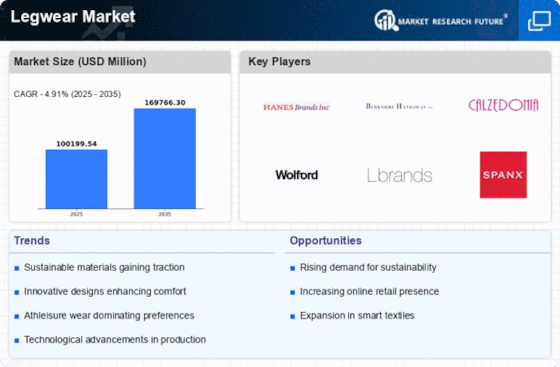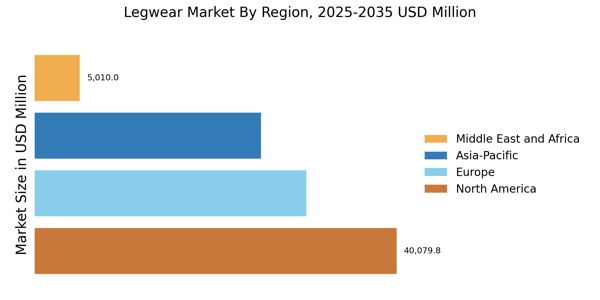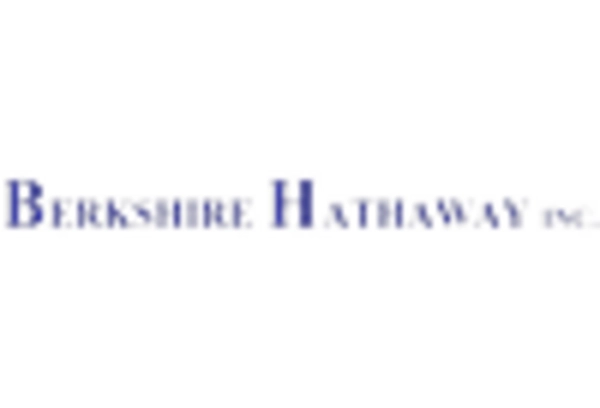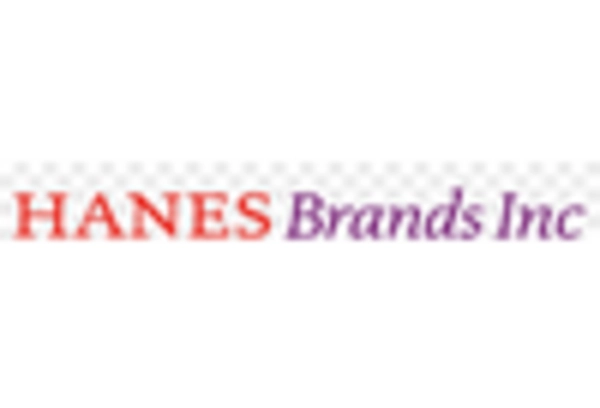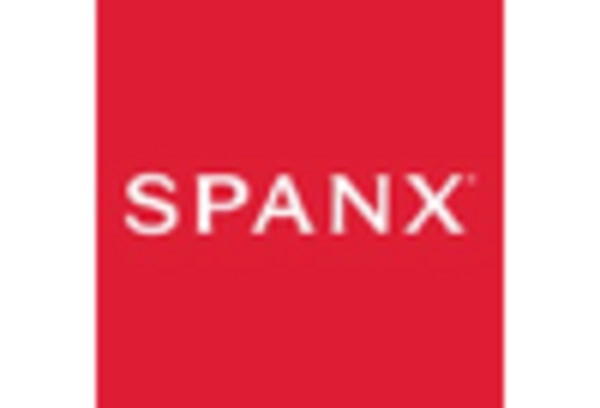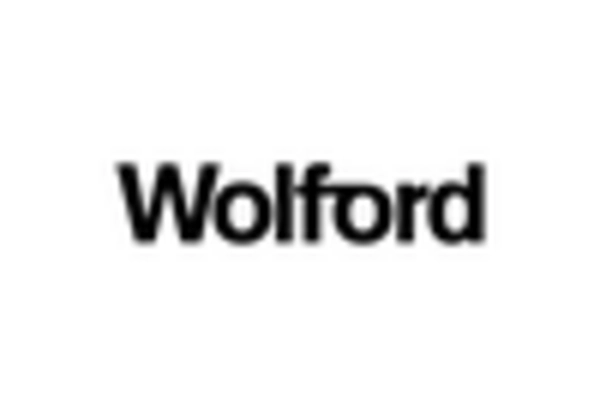Rising Demand for Comfort
The Legwear Market experiences a notable increase in demand for comfort-driven products. Consumers are increasingly prioritizing comfort in their clothing choices, leading to a surge in the popularity of leggings, tights, and other legwear that offer both style and ease of wear. This trend is particularly evident among younger demographics, who favor versatile legwear that can transition from casual to semi-formal settings. According to recent data, the comfort segment of the legwear market has seen a growth rate of approximately 8% annually, indicating a strong consumer preference for products that enhance mobility and comfort. As a result, manufacturers are focusing on innovative materials and designs that cater to this demand, thereby shaping the future of the Legwear Market.
Influence of Fashion Trends
Fashion trends play a pivotal role in shaping the Legwear Market. The cyclical nature of fashion often leads to fluctuating demand for various styles of legwear, including patterned tights, high-waisted leggings, and compression stockings. Recent trends indicate a resurgence of retro styles, which has prompted brands to reintroduce classic designs with modern twists. Additionally, collaborations between fashion designers and legwear brands have resulted in limited-edition collections that attract fashion-conscious consumers. Market data suggests that the legwear segment associated with high-fashion collaborations has experienced a growth rate of 12% over the past year, highlighting the impact of fashion trends on consumer purchasing behavior. This dynamic interplay between fashion and legwear continues to drive innovation and sales within the industry.
Sustainability and Ethical Production
Sustainability has emerged as a critical driver within the Legwear Market, as consumers increasingly demand eco-friendly and ethically produced products. This shift is prompting brands to adopt sustainable practices, such as using recycled materials and reducing waste in their manufacturing processes. Recent surveys indicate that approximately 70% of consumers are willing to pay a premium for sustainable legwear options, reflecting a growing awareness of environmental issues. As a result, companies are investing in sustainable innovations, such as biodegradable fabrics and eco-conscious packaging, to meet consumer expectations. This commitment to sustainability not only enhances brand reputation but also positions companies favorably in a competitive market. The emphasis on ethical production is likely to continue influencing purchasing decisions and shaping the future landscape of the Legwear Market.
E-commerce Growth and Digital Marketing
The Legwear Market is witnessing a transformative shift due to the rapid growth of e-commerce and digital marketing strategies. Online shopping has become increasingly popular, allowing consumers to access a wider variety of legwear options from the comfort of their homes. This trend is further supported by targeted digital marketing campaigns that effectively reach specific consumer segments. Data indicates that online sales of legwear have increased by 15% over the past year, driven by the convenience and accessibility of e-commerce platforms. Brands are leveraging social media and influencer partnerships to enhance their visibility and engage with potential customers. As e-commerce continues to expand, it is likely to play a crucial role in the future growth of the Legwear Market.
Increased Participation in Fitness Activities
The Legwear Market is significantly influenced by the rising participation in fitness activities. As more individuals engage in sports, yoga, and other physical activities, the demand for specialized legwear, such as performance leggings and compression tights, has surged. This trend is particularly pronounced among health-conscious consumers who seek high-quality, functional legwear that enhances their workout experience. Recent statistics indicate that the activewear segment, which includes legwear, has grown by approximately 10% annually, reflecting a broader shift towards fitness-oriented lifestyles. Consequently, brands are investing in advanced fabric technologies that offer moisture-wicking, breathability, and support, thereby catering to the needs of active consumers. This growing focus on fitness is likely to continue shaping the Legwear Market in the coming years.


